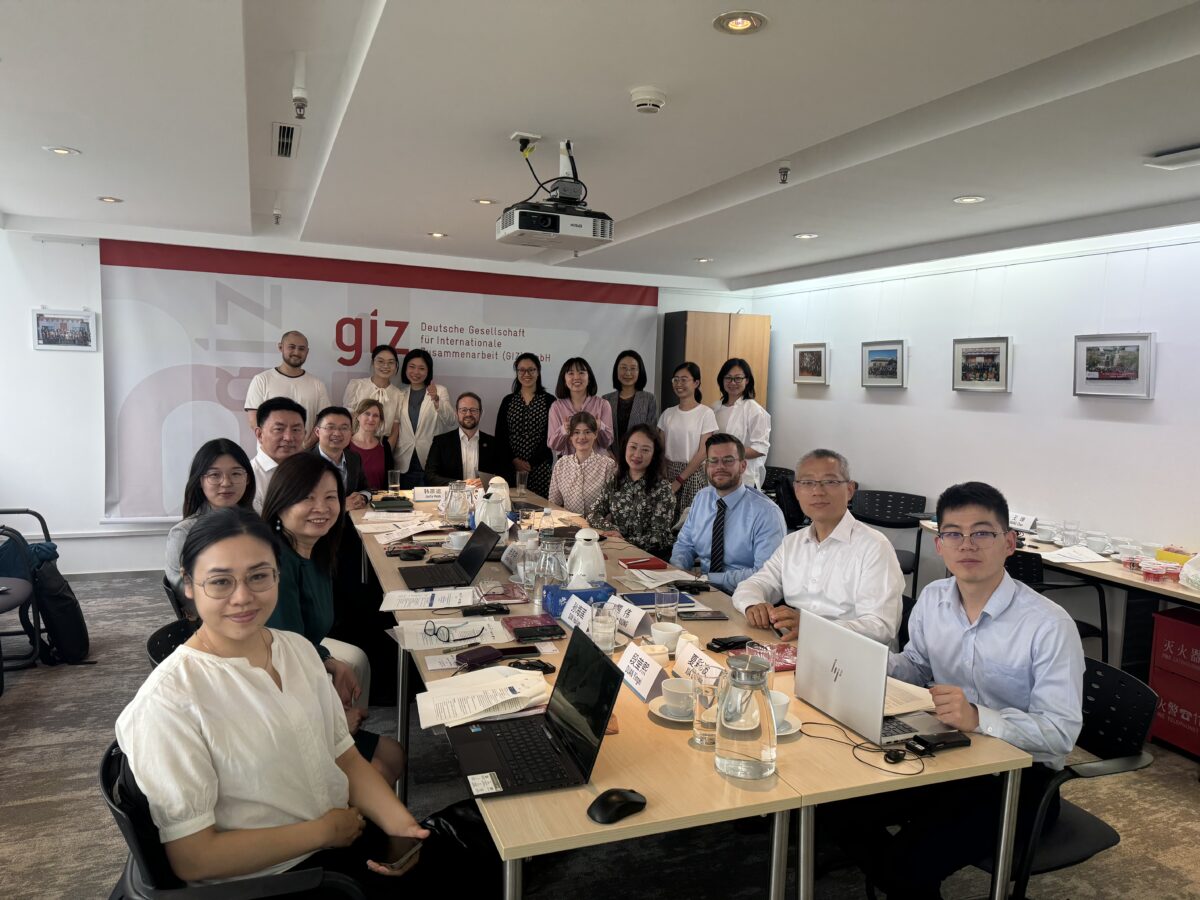
Workshop on Sustainable Debt Instruments under the Sino-German Cooperation on Climate Change
June 12, 2024
On the 29th of May, experts from China and Germany gathered in Beijing for the first workshop of the Sino-German Expert Dialogues Series on Sustainable Finance Products and Practices, hosted by GIZ China and supported by the Institute of Finance and Sustainability (IFS) and Climate & Company. The presentations and discussions focused on green and sustainable debt instruments and their central role in the sustainable finance agenda in China, Germany, and the EU. The participation of 20 representatives from financial institutions and sustainable finance experts helped raise awareness about the current state of sustainable debt instruments in both countries, highlighting areas for mutual learning and collaboration. The workshop shed light on existing debt instruments, such as sustainable loans and bonds, and was structured into two thematic sessions on how the instruments support small and medium-sized enterprises (SMEs) and large corporations in their sustainability transformations.
Dr. Theresa Spandel, coordinator of the project at Climate & Company, had the opportunity to meet the onsite speakers and finance experts in person at the GIZ office during this hybrid event, including representatives from the Bank of Jiangsu and Lianhe Equator. From Germany, the participating institutions included Deutsche Bank, HypoVereinsbank/UniCredit Germany, and DZ Bank.
Main messages of this workshop:
- China’s green bond market was highlighted as the second-largest globally, serving as a crucial channel for raising capital. Since 2021, the benchmark interest rate for Chinese treasury bonds has been lower than that of the US, making these bonds more attractive and cost-effective for international investors. This market has been highly active, especially since the government set carbon neutrality targets in 2020 and the release of the first version of Common Grand Taxonomy (CGT) by IPSF in 2021.
- Panda Bonds play a vital role in opening up China’s fixed income space and offer a particularly interesting case study to look at in detail. They are issued by non-Chinese companies in mainland China, such as by Mercedes-Benz for the leasing business of purely electric vehicles, and offer advantages like new funding channels, comparatively flexible regulations on Use of Proceeds, lower financing costs, and increased global publicity. For example, the annual issuance of Panda Bonds in China exceeded 150 billion RMB (19.25 billion EUR) in 2023, hitting a record high. Though green Panda Bonds make up much less than the total green bonds outstanding in China, the potential for growth is huge.
- The introduction of the EU-China Common Ground Taxonomy has made EU and Chinese Green Bonds more comparable and interoperable, facilitating the cross-broader issuance and trading of green financial products between the jurisdictions, and promoting two-way capital flows between China and the EU, as well as the high-level opening up of China’s capital market.
- Transition finance in debt capital markets is crucial and urgent for addressing climate change. The approach among asset managers is shifting to “transform instead of divest”, which allows a wider range of participants to access the fixed income market to finance their transition to greener operations. This is crucial to support industries beyond those that are already deemed sustainable.
- Compliance challenges for Chinese banks with EU regulations are a key factor to consider. Regulations such the Carbon Border Adjustment Mechanism (CBAM), Corporate Sustainability Reporting Directive (CSRD), and Corporate Sustainability Due Diligence Directive (CSDDD) demand new strategies to manage tax and carbon risks and develop financial instruments to hedge against carbon price fluctuations.
- Future steps to scale up impact including expanding the scope of Use of Proceeds, innovating financial products, and enhancing disclosure and reporting.
Additionally, collaboration among governments, central banks, and investors is essential for effective transformation.
The workshop underscored the need for clear internationally-aligned standards and methodologies for transition finance, including varied transition paths beyond climate aspects. Currently, there are over 20 standards in China, mostly developed at the subnational levels, defining or classifying “transition”, but broader sustainability issues remain challenging. Harmonising or aligning these standards is crucial. Data collection for SMEs and piloting projects at industry or regional levels were suggested as an important area of further improvement on both sides. Sustainability disclosure through the adoption of an international-aligned framework might help with data availability for regulators and investors to identify risks and opportunities.
The conversations will continue as there will be two more workshops in Beijing and Germany later this year, focusing on green and climate insurance and sustainable equity products and investment respectively.
For more details on the different presentations, please read this publication by IFS (in Chinese).
